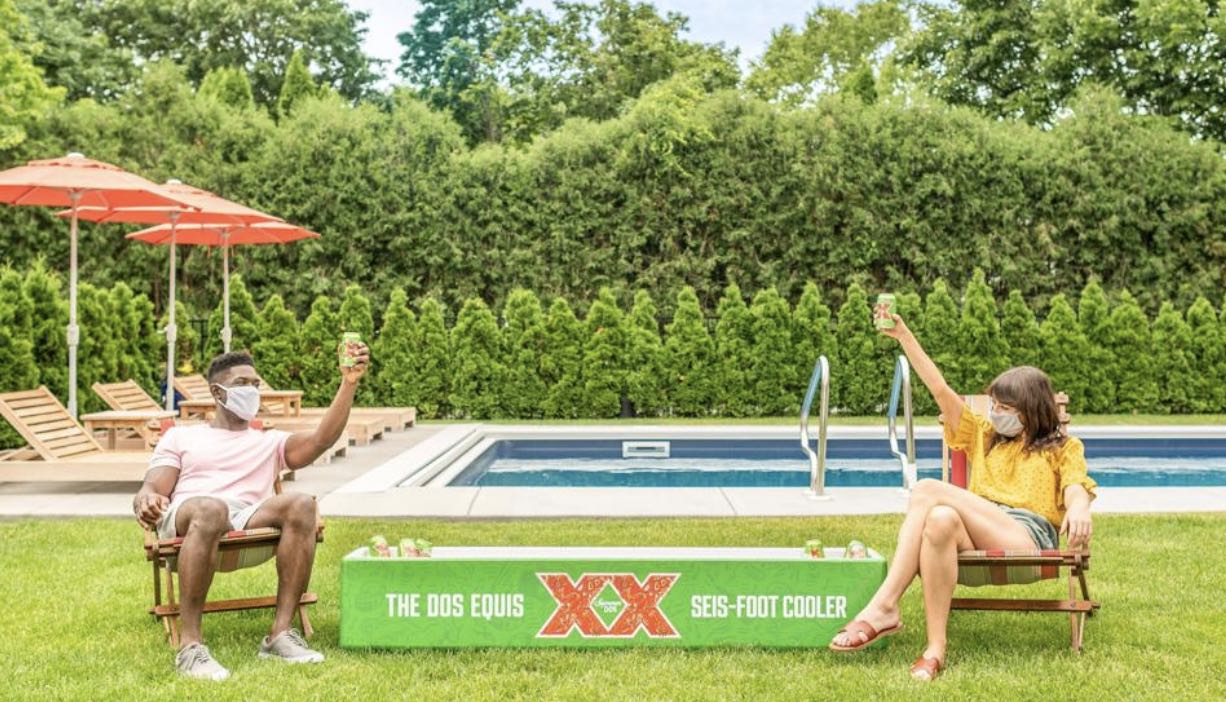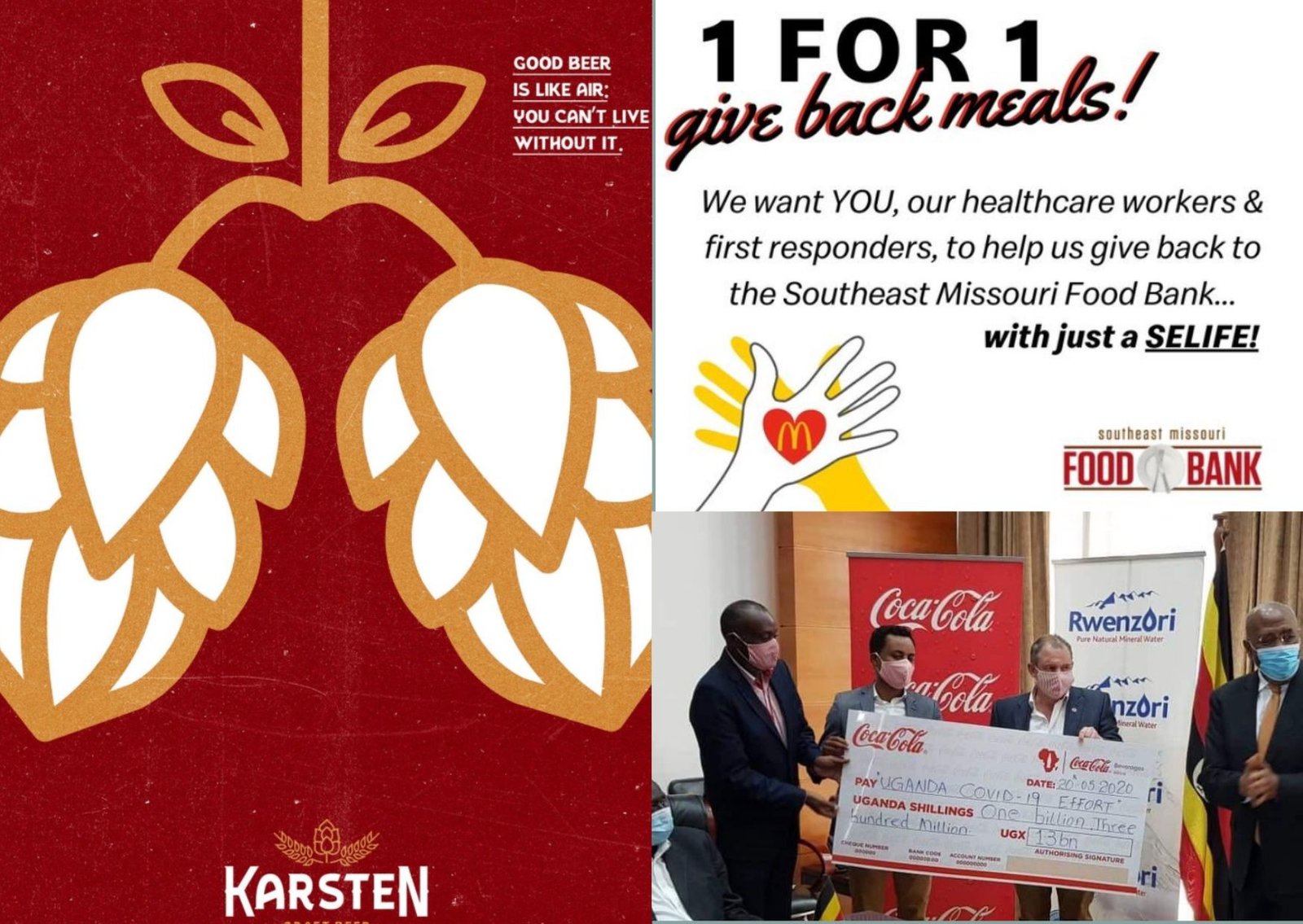From marketing beer with pandemic lingo to giving money to governments, a report argues that corporate capture of COVID-19 is putting lives at risk.
Alcohol and junk food companies have used the pandemic to “ingratiate” themselves with the public and governments – yet their products are driving diseases that exacerbate a COVID-19 infection.
Companies have donated junk food and sugary drinks to health workers and children’s homes. A beer maker has marketed a six-foot “social distancing” cool box. Others have made donations to government relief efforts

These are just a few of the findings in ‘Signalling Virtue, Promoting Harm’, a report released this week that crowdsourced the global pandemic activities of what it calls the “unhealthy commodities industry” – alcohol, junk food and drink, baby formula, fossil fuel and gambling companies.
A substantial body of scientific evidence links the regular consumption of sugary drinks and ultra-processed food with obesity, hypertension, diabetes and cardiovascular problems. People living with these non-communicable diseases (NCDs) are at much greater risk of severe illness and death if they develop COVID-19 too.
From our partners:
“It is a bitter irony that companies such as tobacco, alcohol and junk food, whose products increase the risk of NCDs, thereby putting people at higher risk of suffering through the pandemic, have positioned themselves as heroes and partners in the response and have interfered in public policies that seek to protect population health,” said Lucy Westerman, policy and campaigns manager of NCD Alliance and a co-author of the report.

NCD Alliance and Spectrum Consortium collected 786 examples from 94 countries, mostly from alcohol and ultra-processed food and drink companies.
The unhealthy commodity industries have been “quick to link their messaging and products to the work of health professionals, emergency services and other frontline workers during the pandemic’’, according to the report.
For example, in New Zealand and the UK, Krispy Kreme offered free doughnuts to frontline workers. Brazilian beer maker Karsten modified its logo to resemble a pair of lungs – the main site of COVID-19 infection – and encouraged consumers to follow three key tips to survive the pandemic: “isolate, use sanitiser and drink beer for fun”.
Katie Dain, CEO of NCD Alliance, said that the report “raises concerns about the prospect of a corporate capture of COVID-19.
“We see that companies are deploying these tactics pretty consistently worldwide, in order to ingratiate themselves with policymakers whilst barely concealing cynical attempts to weaken current rules and head off future policies,” she added.
The merciless impact of COVID-19 on people living with NCDs makes it clear that policy change is more urgent than ever.
The tactics seem to be working. Tobacco company Philip Morris International donated fifty ventilators through its Greek subsidiary, Papastratos, to intensive care units in Greece and received public thanks from the country’s health minister.
In Uganda, the government praised Coca-Cola as a “long-standing partner in health causes” after it donated money and trucks to the health ministry.
And Mozambique’s health minister thanked Cervejas de Moçambique (‘Mozambique Beers’), owned by alcohol company AB InBev, for its donation of hand sanitiser, praising “their sense of sharing, in a gesture of friendship”.
Labram Musah, national co-ordinator of the NCD Alliance in Ghana, cited how beer producer Guinness Ghana breweries had “donated to the ministry of information a huge sum of funding and also a pack of 1,500 Guinness to support frontline workers”.
In addition, the Ghanaian Minister of Energy had a media event to accept a donation to the country’s COVID-19 relief fund from the online gambling company, Betway.
Pierre K. Cooke from the Healthy Caribbean Coalition described “predatory marketing practices towards young people” and “donations from alcohol companies and fast food companies to vulnerable groups, communities and children’’.
Acknowledging that many of the activities they reported on provided “invaluable funding for much-needed interventions by governments, civil society and international organisations”, the authors said that their focus was on “examining how unhealthy commodity industries have sought strategic advantage”.
The NCD Alliance fears that governments might be more reluctant to regulate the companies that have given them financial support during the pandemic. The Scottish government has already reneged on an earlier undertaking to regulate various junk food promotions.
“The merciless impact of COVID-19 on people living with NCDs makes it clear that policy change is more urgent than ever,” said Dain. “To build back better from the pandemic, governments need to regulate these industries more strictly, to protect people against preventable NCDs and make our societies healthier and more resilient to future health threats.”
- The researchers have appealed to the public to contribute to their dataset of examples of harmful industries exploiting the pandemic.
Kerry Cullinan &Khatondi Soita Wepukhulu
Source: openDemocracy












